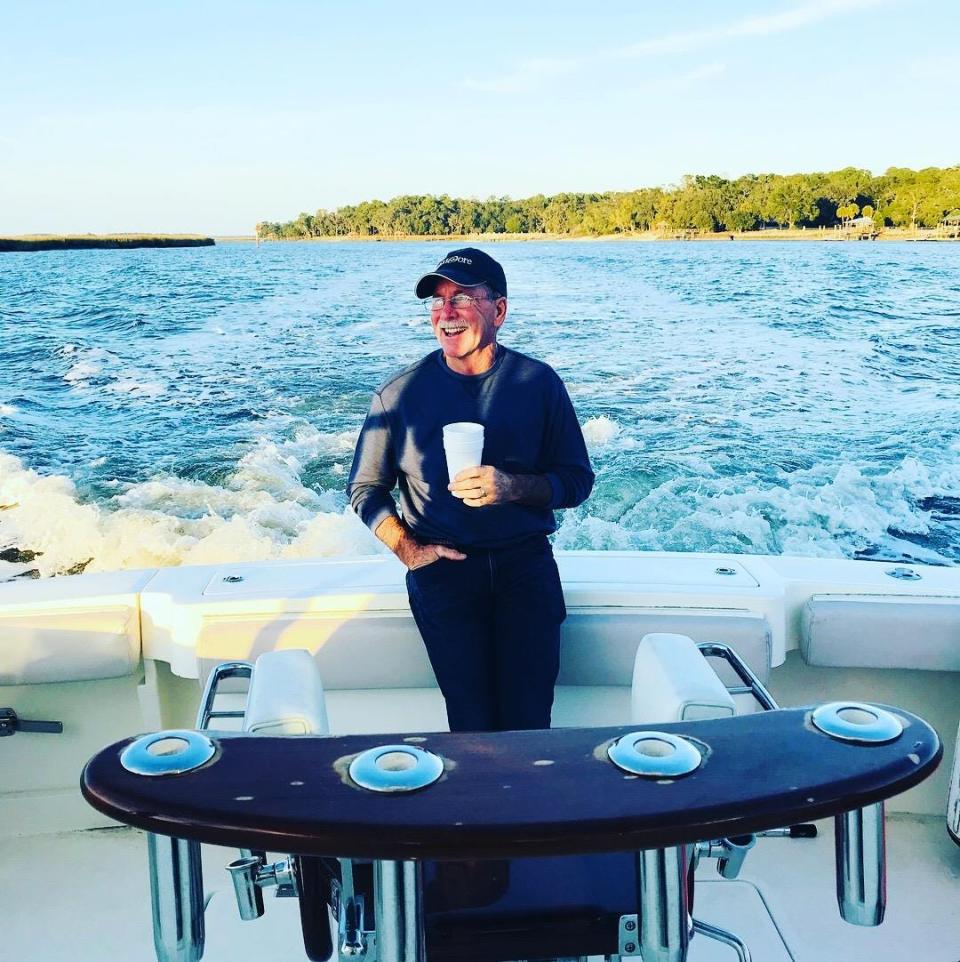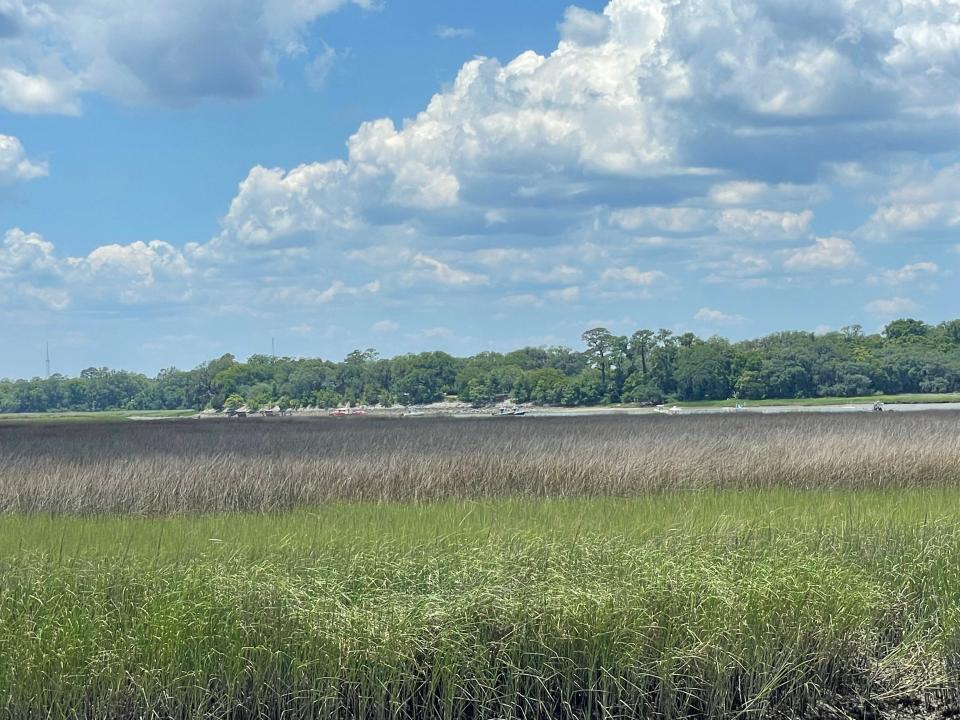In wake of deadly boating accident on Wilmington River, Savannah area boaters talk safety
Editor's note: This story has been updated with additional information regarding Georgia's boating under the influence laws.
Savannah’s waterways and rivers provide a popular escape, especially for recreational boaters on holidays and weekends. But any trip on the water comes with a responsibility to use boating practices that ensure the safety of all passengers aboard.
Nearly 50% of boating accidents in Georgia are caused by collisions with another boat or an object, according to the Georgia Department of Natural Resources.
Six people have died this month in Savannah following collisions while boating.

Local businessman Joe Moore was killed May 5 when a boat he was aboard struck an unlit channel marker near the Savannah Yacht Club and he was hit in the head by an unknown object.
Five people died as a result of a Saturday morning two-boat collision on Wilmington River. Four of those five were members of the same family. DNR confirmed the identity of the deceased as Robert "Stephen" Chauncey, 37; Chris, 51, and Lori Leffler, 50, a married couple from Savannah; and their sons, Nate, 17, and Zach, 23. Their daughter, Katie, survived the crash as did an unidentified friend.
Early morning boat accident on Wilmington River claims life of local business owner, boating enthusiast
More: Four Savannah family members among five killed in Wilmington River boat crash
Boater education

The Lefflers were members of the Savannah franchise of the Freedom Boat Club, joining in January, said fellow club members. The organization provides boat access to members without the need for them to purchase a boat of their own. The club offers a variety of membership plans and on-the-water training taught by a licensed captain.
Freedom Boat Club could not provide comment on the Wilmington River incident due to a pending investigation by DNR. Lee Gordon, vice president of the Brunswick Global Communications and Public Relations, which represents the club, said, “Our thoughts and prayers are with the families of those who passed away during this tragic accident.”
Doug Turgeon joined Freedom Boat Club in 2020. He said the training offered by the club takes an hour or two with an option to take more sessions. While verbal cues are primarily given during training, Turgeon was also given a laminated sheet of paper with boater safety on one side and a map on the other, which helped him navigate new waters.
Arrest made in Memorial Day weekend boat crash on Wilmington River that left 5 dead

“The training that people receive is more than if I would have gone out and purchased my own boat and just put it in the water,” Turgeon said. “I'm familiar with boating. I grew up primarily on lakes, so dealing with the currents and tides was new. ...But I thought the training gave me enough to be comfortable with that sort of question mark.”
All Freedom Boat Club members also have the option to take the America's Boating Course from the U.S Power Squadrons, a 16-hour classroom course taught locally by the Tybee Light Sail and Power Squadron. Freedom Boat Club reimburses members for the class fee and the program can be taken more than once.
#BreakingNews @USCG, partner agencies searching for 3 men after 2 boats collided in the Wilmington River, about 1.5 miles north of Thunderbolt Marina, Saturday.
More to follow. pic.twitter.com/838wZF9TtM— USCGSoutheast (@USCGSoutheast) May 28, 2022
Carl Ericsson has been the education officer for the Tybee Light Sail and Power Squadron for two years. In that role, he is responsible for planning and organizing safe boating classes within the squadron.
Ericsson said he's familiar with the section of the Wilmington River the boating accident occurred and called it a "dogleg," meaning the bend is sharp.
"I've been on that route many many times. And you see the other boat coming and it's kind of a tight area right there," he said.
One of the biggest things the squadron promotes on the water is avoidance and safety, he said. They encourage their students to take their time and watch the other boats around them.
“We teach people to avoid collision; see the other boat and make substantial change so that the other boat knows what you're going to do. You don’t want to wait (until) the last minute,” Ericsson said.
“Take your time and watch the other boat. We're so used to highways where there’s one lane and another lane, but in boating, there are no two lanes.”
Rules of the waterways

DNR has a set of safety and operational regulations to ensure that Georgia boaters enjoy the water while staying safe.
One of their most important rules is the 100-foot law, which requires all operators of all kinds of boats to slow to idle speed when they are within 100 feet of docks, piers, bridges, shorelines or people in the water.
The Georgia Boat Safety Act also prohibits anyone from operating any boat, sailboat, personal watercraft, water skis, sailboard or similar device while intoxicated, which for boating is a blood alcohol content of .08, or about four drinks.
Authorities observe a "zero tolerance" policy as it pertains to boating under the influence - if an operator is found to be intoxicated, he or she will be cited. According to a Georgia DNR official, if an operator involved in an incident passes sobriety tests, the law prohibits him or her from being charged with BUI.
.
When it comes to how to pass another boat, there are a specific set of rules:
When meeting another vessel, boat operators should pass on the right side unless the boats are far enough apart that they are not meeting head-on or close to head-on.
On narrow rivers and streams, boaters should stay as far right as possible and be careful when rounding bends and curves, and overtaking or passing other boats.
In a crossing situation, the boat on the right should hold its course and the boat on the left should slow down and cross behind the other boat.
DNR also encourages the use of life jackets, especially for children.
According to Georgia boating laws, anyone born before Jan. 1, 1998, may legally operate any boat or small vessel on Georgia state waters if they have a proper identification card, such as a driver's license or any other government-issued identification that contains a description of the person, a photograph, and the date of birth, on board. Those born beJan. 1, 1998 and who are at least 16 years old must complete the state's boating education course before operating a vessel.
Laura Nwogu is the quality of life reporter for Savannah Morning News. Contact her at LNwogu@gannett.com. Twitter: @lauranwogu_
This article originally appeared on Savannah Morning News: Wilmington River boating accident prompts discussion on boating safety

